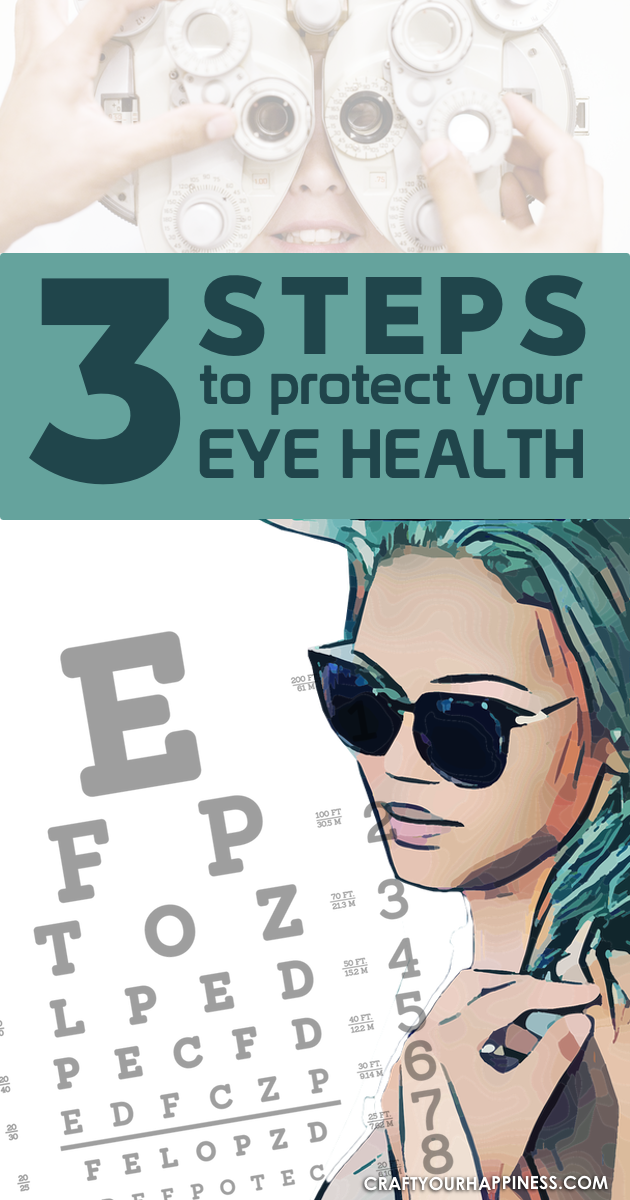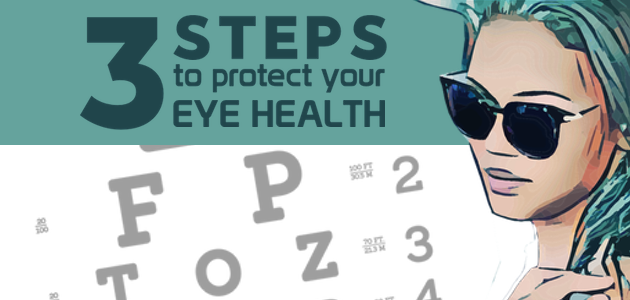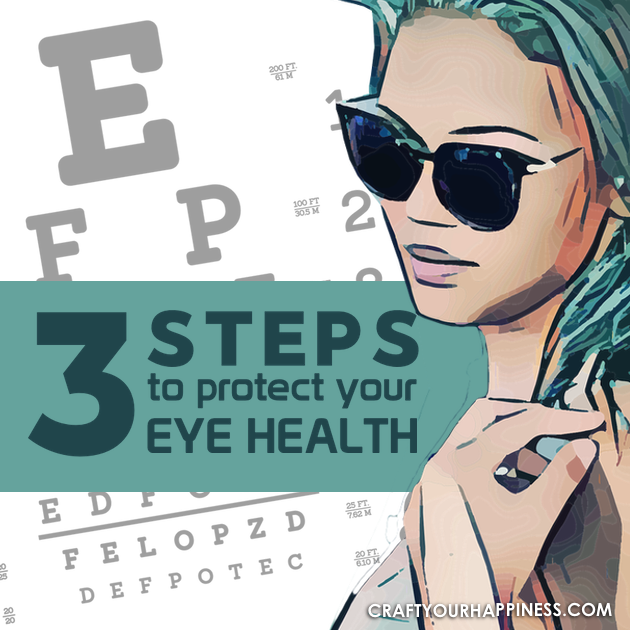
![]()
You use them to read, scroll down your Twitter feed, gaze lovingly at your loved ones, and watch TV, not to mention read a computer screen at work … it’s fair to say that your eyes only ever get a break when you are sleeping. Though you’re no doubt well aware of what you need to do to keep the rest of your body fit and healthy, have you ever considered how you can keep your eyes healthy? Neglecting your eye health can lead to vision problems, perhaps even avoidable sight loss. Read on to discover three ways to protect your eye health.
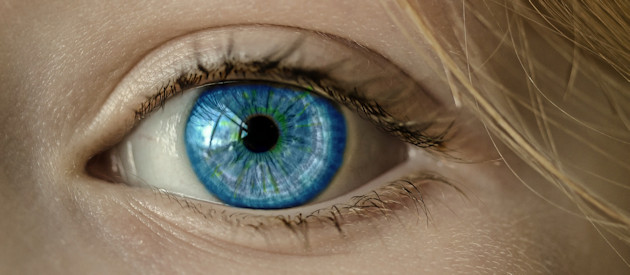
1. Wear sunglasses in bright light
It’s common knowledge that UV rays from strong sunlight are harmful to the skin, and these also affect your eyes. Put simply, you wouldn’t go out in strong sunlight without wearing sun lotion, so why would you go out without protecting your eyes? Look for sunglasses that have 100% protection against harmful UVA and UVB rays; this should be noted on the label. If you are unsure about an older pair of sunglasses you own, an optician should be able to quickly test their protection using a photometer. Remember too that sunglasses are not only for the hot summer months: you should also wear them on cold snowy days to prevent snow blindness caused by UV rays reflecting off the white surface.

2. Go for a regular eye test
If you are lucky enough to have 20-20 vision you might believe that you don’t need to go for regular eye tests; however, a qualified optician will be able to identify any changes to your eyes and recommend solutions and eye care tips. In addition to regular eye tests every 12 months or so, you should immediately visit an optician if you experience any changes to your vision, such as blurred vision. This might simply be due to a development of long- or short-sightedness, which can easily be managed by the wearing of glasses or contact lenses. The optician can also advise you on eye surgery involving replacement lenses such as the Panoptix lens, which provides an ideal treatment option for degenerative conditions such as cataracts.
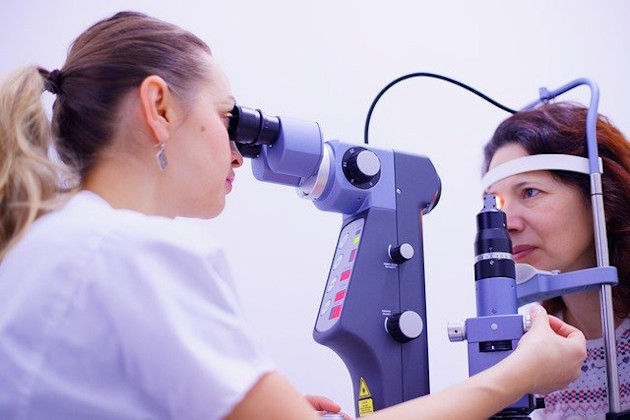
3. Avoid eye strain when using monitors
For a lot of people, a computer or laptop is their primary tool for work, and as such you could be spending eight hours a day or more on the computer. Add to this the use of monitors in down time, such as browsing social media on your phone or watching Netflix on your tablet, and you could quickly find that a majority of your day is spent staring at a screen. Looking at a monitor for a long time can cause eye strain, with symptoms including eye discomfort, headaches, and blurred vision; however, there are ways you can avoid this work-related condition. Regularly look away from your screen, focussing instead on an object far away, for instance out of the window; this helps to relax the focusing muscle in the eye.
